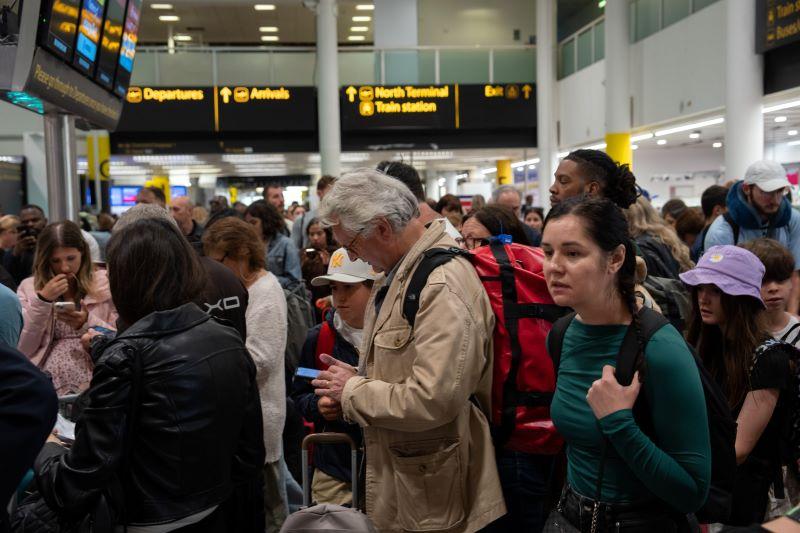
Travelers heading to and from the UK faced long delays and disruption on a busy public holiday after UK air traffic control (ATC) provider NATS had to impose traffic flow restrictions because of a technical problem.
The issue—which NATS did not explain in detail—meant that controllers had to resort to manually inputting flight plan details, severely limiting both departing and inbound flights.
The problem coincided with the Late Summer Bank Holiday in England, Wales and Northern Ireland, a traditionally busy travel day as many holidaymakers take long weekend breaks or return from summer holidays ahead of the start of the new school term.
“We are currently experiencing a technical issue and have applied traffic flow restrictions to maintain safety,” NATS said at 12:10 p.m. local time Aug. 28. “Engineers are working to find and fix the fault.”
In an update 30 minutes later, NATS said: “To clarify, UK airspace is not closed, we have had to apply air traffic flow restrictions which ensures we can maintain safety.”
At 2:20 p.m. local time the ATC provider added that: “This morning’s technical issue is affecting our ability to automatically process flight plans. Until our engineers have resolved this, flight plans are being input manually which means we cannot process them at the same volume, hence we have applied traffic flow restrictions. Our technical experts are looking at all possible solutions to rectify this as quickly as possible. Our priority is ensuring every flight in the UK remains safe and doing everything we can to minimize the impact.”
Passengers were held on board inbound short-haul services throughout Europe for much of the day, with many reporting on message boards that they had been told by airline personnel they could be delayed for as long as 12 hr.
Ireland-based ULCC Ryanair, whose largest base is at London Stansted Airport, reported on its website that “Air traffic across the UK is experiencing significant disruptions today Aug. 28 due to ATC equipment failure. Ryanair regrets any inconvenience caused to passengers by this disruption, which is outside of Ryanair’s control.”
The UK’s largest regional operator, Loganair, which first reported the problem, tweeted that there had been “a network-wide failure of UK air traffic control computer systems this morning.” The Scotland-based carrier said that “Although we are hopeful of being able to operate most intra-Scotland flights on the basis of local coordination and with a minimum of disruption, north-south and international flights may be subject to delays.”
NATS reported at 3:15 p.m. local time that the issue was resolved.
"We have identified and remedied the technical issue affecting our flight planning system this morning," it said in a statement. "We are now working closely with airlines and airports to manage the flights affected as efficiently as possible. Our engineers will be carefully monitoring the system’s performance as we return to normal operations. We are sincerely sorry for the disruption this is causing. Please contact your airline for information on how this may affect your flight.”
Despite the resolution,knock-on delays seemed likely to persist for some time—potentially into Aug. 29—as flight crews ran out of duty time and flights had to be canceled.
In a statement late afternoon local time, British Airways (BA) said, “Like all airlines using UK airspace, our flights have been severely disrupted ... While NATS has now resolved the issue, it has created significant and unavoidable delays and cancellations. We’re working as hard as possible to get customers whose flights have been affected on their way again and have apologized for the huge inconvenience caused.”
BA advised passengers scheduled to travel on a short-haul service later on Aug. 28, not to travel to their airport unless their flight was shown to be operating. Any customers scheduled to travel on Aug. 28 or 29 could move their flights free of charge to a later date, subject to availability.
Any customers whose flights were canceled were being rebooked on other BA flights and alternative carriers.

